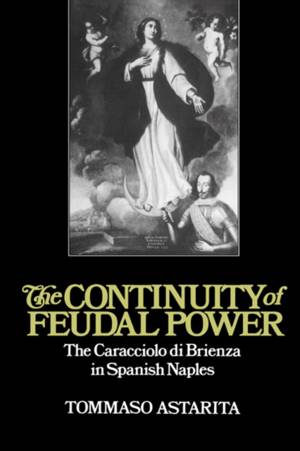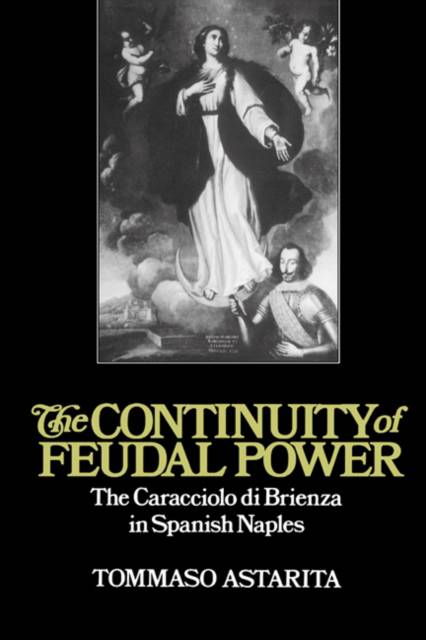
Door een staking bij bpost kan je online bestelling op dit moment iets langer onderweg zijn dan voorzien. Dringend iets nodig? Onze winkels ontvangen jou met open armen!
- Afhalen na 1 uur in een winkel met voorraad
- Gratis thuislevering in België vanaf € 30
- Ruim aanbod met 7 miljoen producten
Door een staking bij bpost kan je online bestelling op dit moment iets langer onderweg zijn dan voorzien. Dringend iets nodig? Onze winkels ontvangen jou met open armen!
- Afhalen na 1 uur in een winkel met voorraad
- Gratis thuislevering in België vanaf € 30
- Ruim aanbod met 7 miljoen producten
Zoeken
The Continuity of Feudal Power
The Caracciolo Di Brienza in Spanish Naples
Tommaso Astarita, Astarita Tommaso
€ 60,95
+ 121 punten
Omschrijving
The Continuity of Feudal Power is an analytic study of a family of the Neapolitan aristocracy during the early modern period, with particular focus on the time of Spanish rule (1503-1707). The Caracciolo marquis of Brienza were a branch of one of the oldest and most powerful clans in the kingdom of Naples, and they numbered among the hundred wealthiest feudal families throughout the early modern period. Professor Astarita reconstructs the family's patrimony, administration and revenues, the family's relationship with the rural communities over which it had jurisdiction, its marriage and alliance policies, and the relations between the aristocracy and the monarchical government. His emphasis is on the continuing importance of feudal traditions, institutions and values both in the definition of the aristocracy's status and in its success in ensuring the persistence of its wealth and power within the kingdom.
Specificaties
Betrokkenen
- Auteur(s):
- Uitgeverij:
Inhoud
- Aantal bladzijden:
- 296
- Taal:
- Engels
- Reeks:
Eigenschappen
- Productcode (EAN):
- 9780521893169
- Verschijningsdatum:
- 5/02/2004
- Uitvoering:
- Paperback
- Formaat:
- Trade paperback (VS)
- Afmetingen:
- 153 mm x 230 mm
- Gewicht:
- 458 g

Alleen bij Standaard Boekhandel
+ 121 punten op je klantenkaart van Standaard Boekhandel
Beoordelingen
We publiceren alleen reviews die voldoen aan de voorwaarden voor reviews. Bekijk onze voorwaarden voor reviews.











